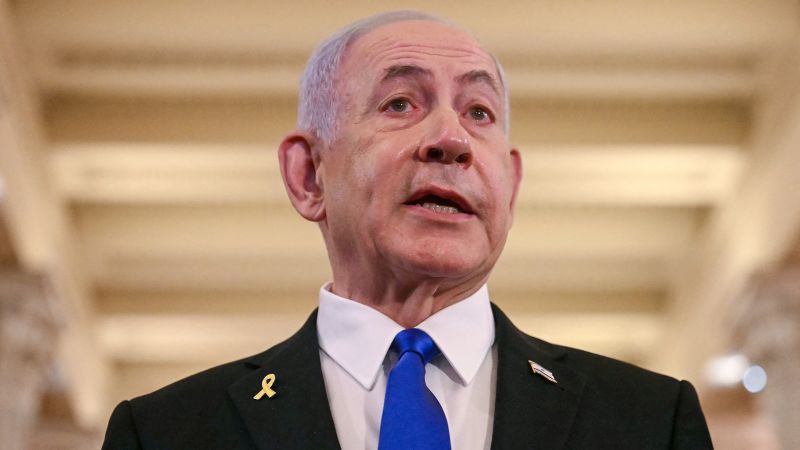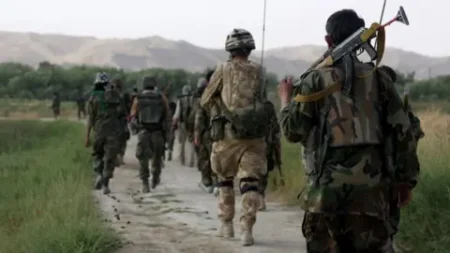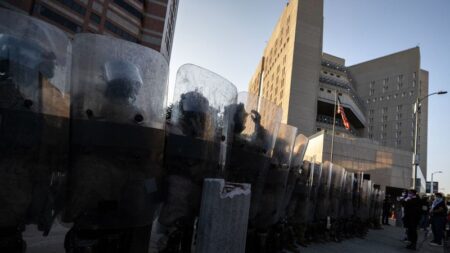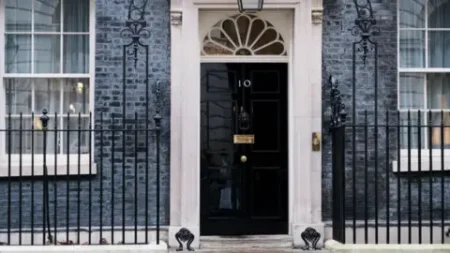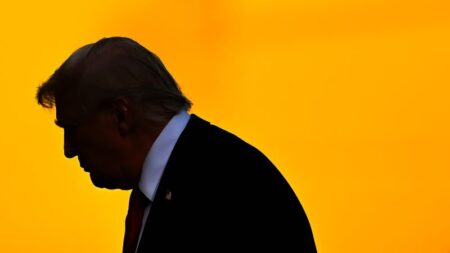Israeli Prime Minister Benjamin Netanyahu has dismissed the campaign proposals of Zohran Mamdani, the Democratic mayoral nominee in New York City, as “nonsense,” asserting that Mamdani would only serve one term if elected in the upcoming November elections. During an appearance on “The Full Send Podcast” hosted by the Nelk Boys, Netanyahu discussed a range of topics, including the ongoing conflict between Israel and Hamas in Gaza, relations with Iran, and the American political landscape, notably mentioning former President Donald Trump’s fondness for fast food and candy.
As the conversation shifted towards antisemitism, one of the hosts, Aaron “Steiny” Steinberg, labeled Mamdani as an “antisemite.” This accusation stems from Mamdani’s failure to publicly denounce the use of the term “globalize the intifada,” a phrase that some critics argue incites violence against Jews. Although Mamdani rejects the accusations of antisemitism, he faces scrutiny due to his critiques of Israel’s military actions, which he has characterized as genocidal.
Netanyahu, while discussing the increase in hatred towards Israel, directed his attention to Mamdani’s proposals on addressing affordability and public safety in New York City. He expressed strong disapproval of Mamdani’s calls for reforms, particularly the idea to defund the police, an approach Netanyahu criticized sharply. He quipped, “You want to have people go into stores and rob them and be free? You think that creates a good society?” This statement highlights a palpable concern regarding public safety and law enforcement in the city’s communities amidst broader discussions of police reform.
Contrary to Netanyahu’s assertions, Mamdani has clarified that he does not intend to defund the police. Instead, his campaign aims to redistribute resources within the police department to prioritize serious crimes while maintaining the current headcount of officers. New York City, home to the largest Jewish population outside of Israel—approximately 1.2 million individuals—presents a complex backdrop for Netanyahu’s remarks, which may resonate differently among the city’s Jewish communities, particularly as the political climate increasingly polarizes around issues of public safety and racial justice.
With Mamdani criticizing Israel’s military operations, he has stated unequivocally that, should he become mayor, he would seek to arrest Netanyahu if he ever entered New York City. This comment stems from an International Criminal Court warrant issued against Netanyahu, which Israel vehemently refutes as unjust. In recent discussions, Netanyahu has expressed frustration over Mamdani’s plans to introduce higher taxes on the wealthiest residents of New York City, predicting disastrous economic consequences and labeling the proposal as shortsighted.
Netanyahu warned, “You want to crush all enterprise? You want to tax people to death? I mean, that’s a one-term effort.” Furthermore, he dismissed Mamdani’s ambitions as a transient “folly,” suggesting that the voters will eventually realize the impractical nature of his proposals. However, Netanyahu retains an underlying confidence that truth will prevail among the youth of America, allowing them to discern the reality of the situation.
As the New York mayoral race heats up, discussions about antisemitism and Israel remain central, particularly following the prior primary elections. Mamdani finds himself competing against not just the incumbent Mayor Eric Adams, but also against Republican candidate Curtis Sliwa and former Governor Andrew Cuomo, who persists in his campaign as a third-party contender despite previous electoral setbacks. Both Adams and Cuomo have levelled accusations of antisemitism against Mamdani, thrusting the issue into the spotlight as electoral debates unfold.
Despite the challenges he faces, Mamdani has garnered support from various influential Jewish leaders, including City Comptroller Brad Lander and US Representative Jerry Nadler. He has pledged to significantly increase funding for the city’s programs aimed at combating hate crimes, vowing an 800% boost to efforts that address intolerance and ensure community safety for all citizens. This multifaceted campaign strategy aims to navigate the intricate boundaries of identity, community safety, and political representation as Mamdani prepares for the decisive election in November.





